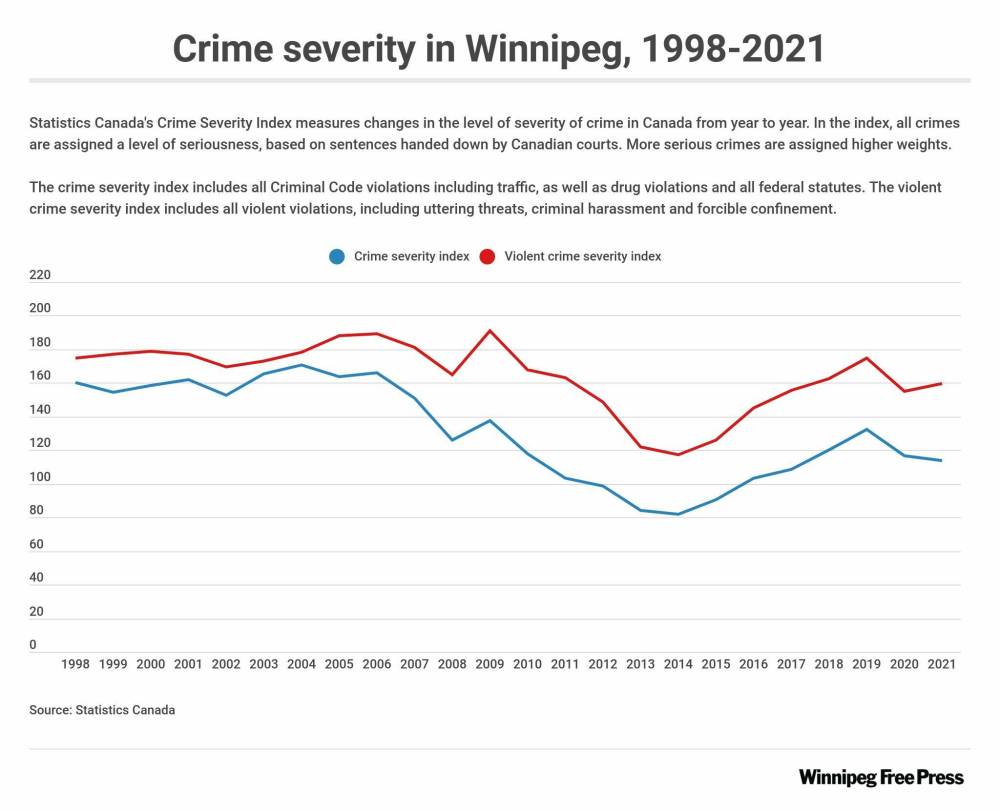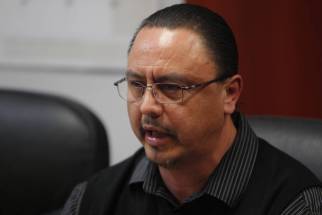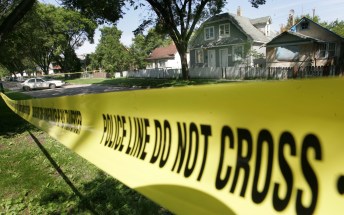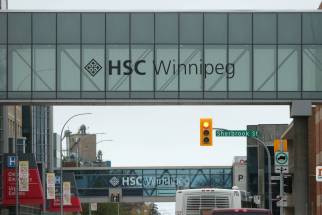Crimefighting candidates make promises they can’t keep
Read this article for free:
or
Already have an account? Log in here »
To continue reading, please subscribe:
Monthly Digital Subscription
$0 for the first 4 weeks*
- Enjoy unlimited reading on winnipegfreepress.com
- Read the E-Edition, our digital replica newspaper
- Access News Break, our award-winning app
- Play interactive puzzles
*No charge for 4 weeks then price increases to the regular rate of $19.00 plus GST every four weeks. Offer available to new and qualified returning subscribers only. Cancel any time.
Monthly Digital Subscription
$4.75/week*
- Enjoy unlimited reading on winnipegfreepress.com
- Read the E-Edition, our digital replica newspaper
- Access News Break, our award-winning app
- Play interactive puzzles
*Billed as $19 plus GST every four weeks. Cancel any time.
To continue reading, please subscribe:
Add Free Press access to your Brandon Sun subscription for only an additional
$1 for the first 4 weeks*
*Your next subscription payment will increase by $1.00 and you will be charged $16.99 plus GST for four weeks. After four weeks, your payment will increase to $23.99 plus GST every four weeks.
Read unlimited articles for free today:
or
Already have an account? Log in here »
Hey there, time traveller!
This article was published 23/08/2022 (1201 days ago), so information in it may no longer be current.
Mayoral candidate Glen Murray says violent crime is occurring at rates never seen before in Winnipeg and if he’s elected, he’s going to do something about it.
As usual, you have to take what Murray says with a generous grain of salt, especially when it comes to his revisionist history of Winnipeg when he was mayor between 1998 and 2004. Murray likes to opine about how rotten things have become in Winnipeg since he left the city for greener pastures 18 years ago. His latest musings have been about how crime has escalated.
“What I’m experiencing where I live in south-central Winnipeg, and where I work downtown, is rising violent-crime concerns from friends and neighbours, attacks and the kind of violence on the street in broad daylight or in the evening that we’ve never seen before,” Murray told the Free Press in a recent interview.
JESSICA LEE / WINNIPEG FREE PRESS FILES Mayoral candidate Glen Murray says Winnipeg has to get back to more community policing to bring violent crime down.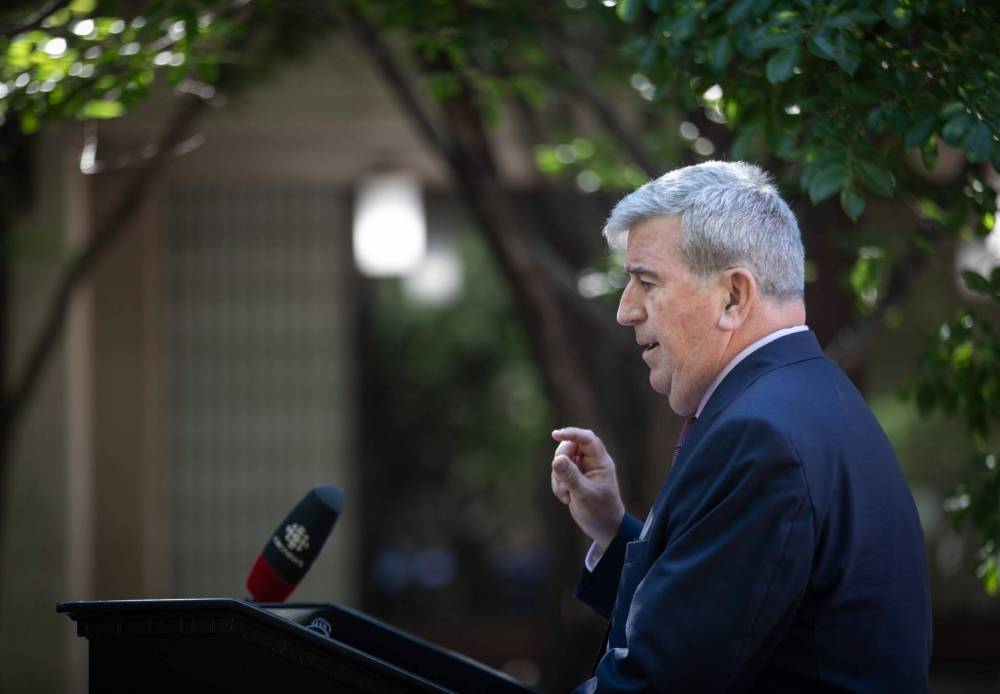
The former Ontario Liberal cabinet minister hasn’t lost his flair for the dramatic.
Murray says Winnipeg has to get back to more community policing, including putting beat cops on the street again (Winnipeg has beat cops), to bring violent crime down. He says Winnipeg’s current policing strategy isn’t working.
In fact, violent crime was worse in Winnipeg when Murray was mayor than it is today. According to Statistics Canada, the violent-crime severity index for Winnipeg’s census metropolitan area (CMA) averaged 175.4 from 1998 to 2004 and rose slightly during that period. It has fluctuated since then, peaking at 191.2 in 2009. The average was 161.5 between 2017 and 2021. Crime severity indices place greater weight on more serious crimes to allow for a more uniform comparison of crime rates over time.
That data differs from Winnipeg Police Service statistics, which measure crime in Winnipeg only. CMAs include communities outside of Winnipeg. The WPS crime-severity index database goes back only to 2015. However, its figures rise and fall roughly in line with CMA figures.
The crime-severity index for Winnipeg, which measures a broader range of crimes — not just violent ones — was also higher when Murray was mayor than it is now. It averaged 160.5 under his tenure. It’s well below that today, averaging 117.98 over the past five years. So whatever the city was doing 20 years ago when Murray was mayor did little, if anything, to reduce crime.
Violent crime in Winnipeg has been on the rise in recent years after hitting a low in 2014. That’s been well-documented. What’s less clear is what’s driving it. Like any other major Canadian city, Winnipeg’s crime rate goes through cycles, most of which cannot be objectively explained. Poverty, addictions, mental illness, organized crime and the drug trade are all contributors. They have been for decades. Trying to accurately measure how addressing any of those social ills impacts criminal activity is a far more complicated exercise.
There is no evidence that putting more cops on the street, through community policing or otherwise, has a long-term impact on criminal activity. It’s very difficult to prove that any crime-fighting initiative reduces crime on a permanent basis. There are some exceptions, such as measures used to suppress auto theft. For the most part, though, trying to prove causation between crime-prevention measures and falling crime rates is, at best, problematic.
There is no evidence that putting more cops on the street, through community policing or otherwise, has a long-term impact on criminal activity.
Police are trained and resourced primarily to respond to crime and to investigate it after the fact. Anything beyond those core functions, including crime-prevention programs, is hit and miss. Measuring police responses and clearance rates is fairly straightforward; trying to prevent crime before it happens is far more challenging.
That doesn’t mean governments shouldn’t attempt to address the root causes of crime, including poverty and addictions, through community outreach and direct government programming. Of course they should, for humanitarian reasons alone. But most of what Murray and other mayoral candidates are proposing in this municipal election to combat crime isn’t new and there is no way of knowing whether any of it would work. Crime could rise over the next five to 10 years regardless of what the city does to fight it — just like it did when Murray was mayor two decades ago.
tom.brodbeck@freepress.mb.ca

Tom has been covering Manitoba politics since the early 1990s and joined the Winnipeg Free Press news team in 2019.
Our newsroom depends on a growing audience of readers to power our journalism. If you are not a paid reader, please consider becoming a subscriber.
Our newsroom depends on its audience of readers to power our journalism. Thank you for your support.

